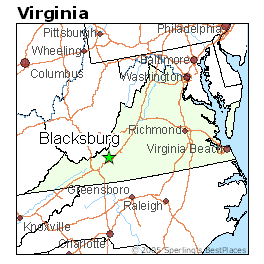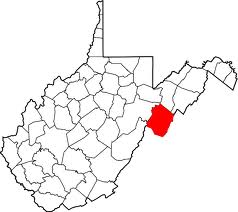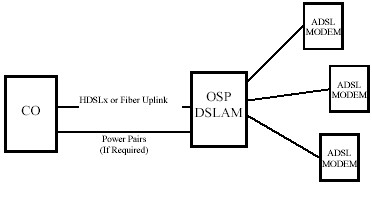 While larger cities like Virginia Beach and Richmond have enjoyed broadband service for years, residents in the western half of the state often are not so lucky. The region is home to some serious broadband black holes, where residents have no access to Internet service beyond dial-up, satellite, or borrowing a friend’s expensive DSL connection in town.
While larger cities like Virginia Beach and Richmond have enjoyed broadband service for years, residents in the western half of the state often are not so lucky. The region is home to some serious broadband black holes, where residents have no access to Internet service beyond dial-up, satellite, or borrowing a friend’s expensive DSL connection in town.
Like West Virginia to the northwest, much of this part of the state suffers with very low speed DSL, occasional wireless Internet, and a handful of cable companies trying to provide access. In addition to the rural character of the region, landline networks have deteriorated over the years and large phone companies have focused their efforts on network improvements further east.
Now a series of government-funded broadband expansion projects, regional and local broadband and telephone co-ops, and local providers are working together to expand modern broadband into areas that have never had access before.
The Virginia Tech Foundation and the Mid-Atlantic Broadband Cooperative are now working to expand a fiber broadband middle-mile network from Bedford to Blacksburg — the areas surrounding Roanoke that have suffered with difficult Internet access for years.
Among the first clients is PemTel, a telephone cooperative in Pembroke. PemTel still speaks of DSL as a “new technology” in the area, and has speeds that reflect that:
| DSL 768 kbps/256 kbps | $29.95 |
| DSL 1.544 Mb/256 kbps | $45.95 ORIGINAL HIGH SPEED PLAN |
| DSL 3.0 Mb/512 kbps | $45.95 |
| DSL 6.0 Mb/1.0 Mb | $89.95 |
 PemTel started with an original plan offering just 256kbps — speed that does not even qualify as “broadband.” But increasing capacity is opening the door for Pembroke residents to get speeds that can at least manage today’s web pages. Customers are also glad to see the back of satellite “broadband” which severely limited usage.
PemTel started with an original plan offering just 256kbps — speed that does not even qualify as “broadband.” But increasing capacity is opening the door for Pembroke residents to get speeds that can at least manage today’s web pages. Customers are also glad to see the back of satellite “broadband” which severely limited usage.
With fiber middle mile networks now stringing through southern Virginia, local providers can access backbone capacity at lower prices, which can, in turn, deliver substantial broadband capacity to new high tech businesses setting up in the area.
[flv width=”512″ height=”308″]http://www.phillipdampier.com/video/WDBJ Roanoke Fiber Through New River Valley 6-11-12.mp4[/flv]
The New River Valley in Virginia is building a multi-county fiber network to act like an interstate highway system for broadband. WDBJ reports. (2 minutes)
[flv width=”480″ height=”380″]http://www.phillipdampier.com/video/WSLS Roanoke Bedford to Blacksburg gets hi-speed internet boost 6-12-12.flv[/flv]
WSLS in Roanoke explores a new fiber network going in from Blacksburg to Bedford, Va., and what it could mean for broadband-deprived residents. (2 minutes)


 Subscribe
Subscribe






